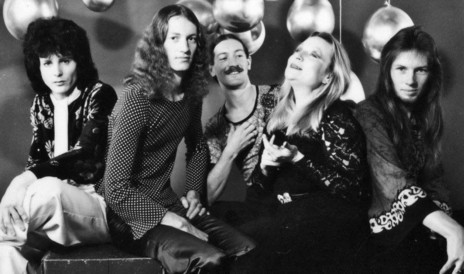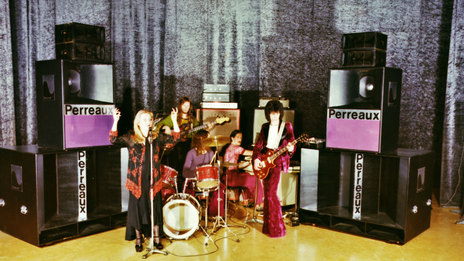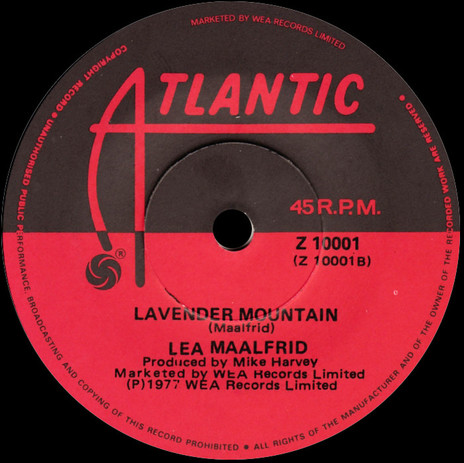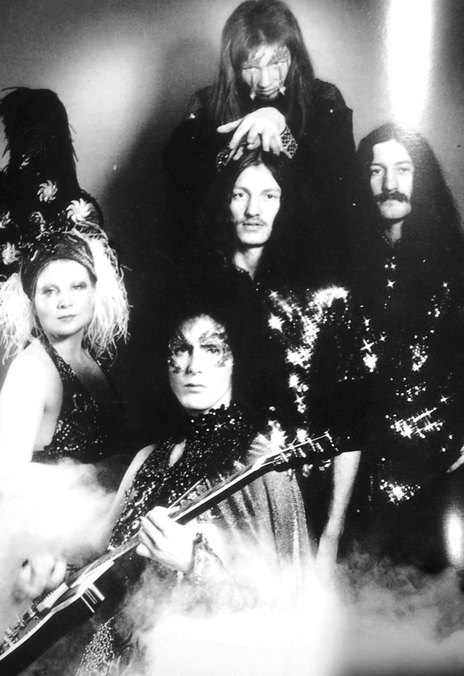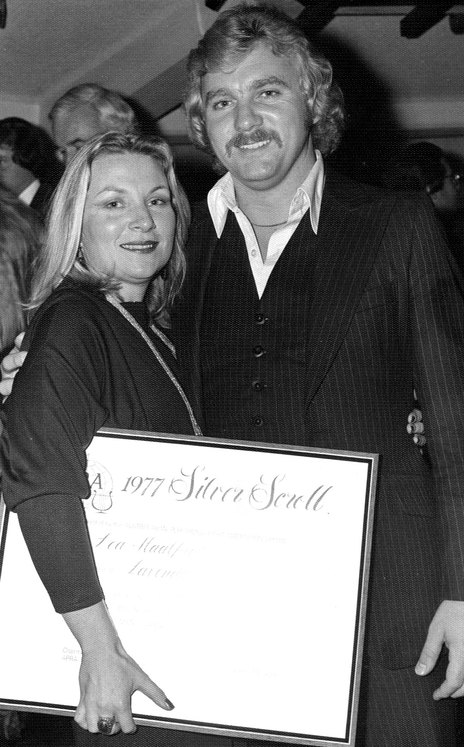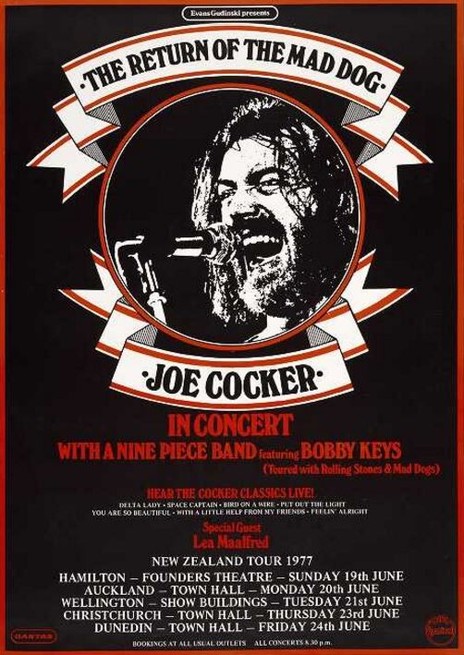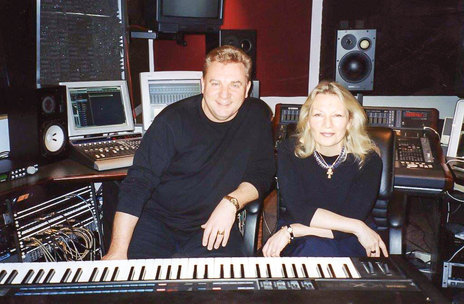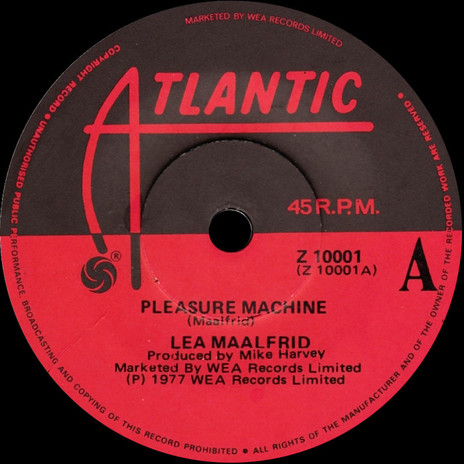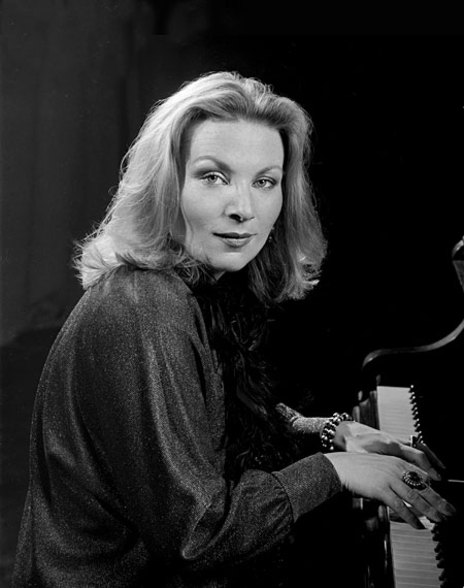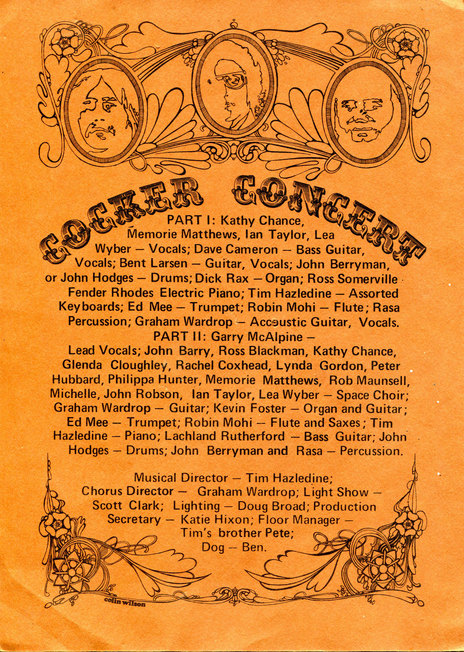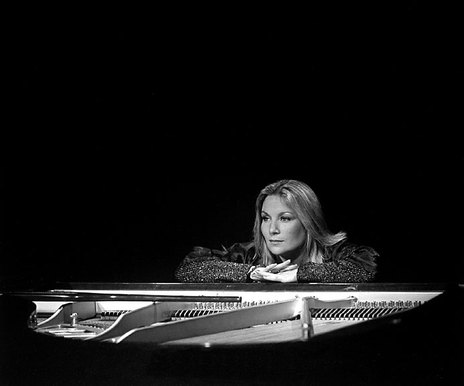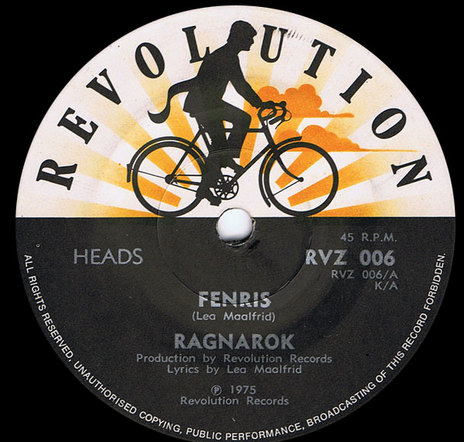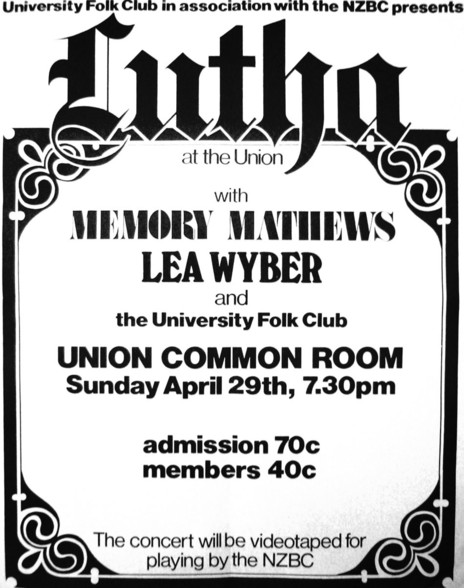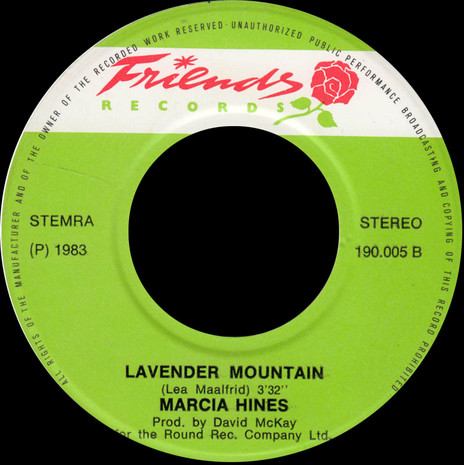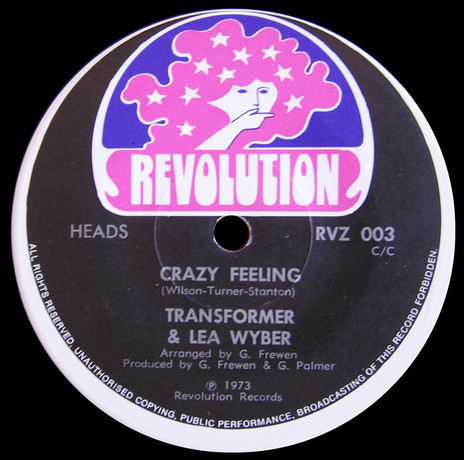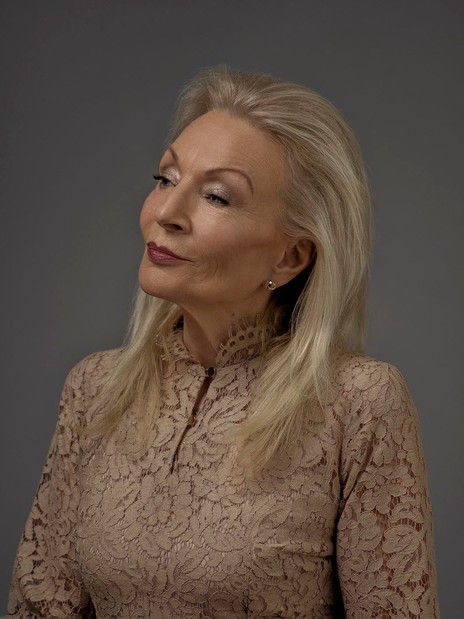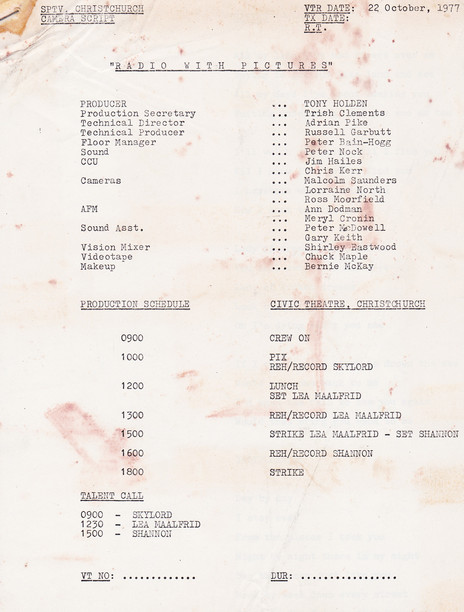Soon, there were reports from Sydney that – through friends of friends – her demo tapes had reached and impressed Clive Franks, who produced Elton John’s album A Single Man. She was about to be signed to John’s label, Rocket Records, to make an album that would include remakes of her 1977 single, ‘Lavender Mountain’ and ‘Pleasure Machine’. Maalfrid was off to London, with 40 original songs for the proposed album.
So often these stories would run in New Zealand newspapers in the 1970s and 1980s, but rarely was there a follow-up piece. Almost inevitably, the Rocket album didn’t eventuate. But within two years Maalfrid had a couple of songs in the US and UK charts, ‘You Could Have Been With Me’ and ‘Trouble in the Shadows’. Her name wasn’t on the label, though. The songs were recorded by Sheena Easton for the album that followed her #1 US hit, ‘Morning Train (Nine to Five)’.
Suddenly, Maalfrid was an in-demand international songwriter, 10 years after her career began as a singer at Otago University.
Maalfrid’s demos had been heard by another producer, Christopher Neil (Shakin’ Stevens, Dennis Waterman), who intended recording an album with her, but meanwhile thought the songs would be suitable for the fast-rising Easton. ‘You Could Have Been With Me’ became the title of Easton’s album, and as a single made #15 in the US charts.
Suddenly, Maalfrid was an in-demand international songwriter, 10 years after her career began as a singer at Otago University. She never performed live again.
Maalfrid had grown up in Alexandra, Central Otago; her father played double bass, and her mother was an artist. As a small girl, she loved playing the piano – especially when no one else was around – and began writing “funny little songs” while studying classical piano for a decade.
Maalfrid arrived in Dunedin “just 15, wide-eyed and long blonde hair,” Roy Colbert recalled; she was already “keen to forge a career in music.” She formed a group called Leaway, yet she once described rock bands as “horrendous – too loud, too transient.” But her most prominent performance while at Otago was playing a Janis Joplin-style singer in a lavish 1973 student production based on the film of Joe Cocker’s Mad Dogs & Englishman tour.
The large production was put together by Tim Hazledine, later to become a professor of economics at Auckland University. The eight-piece band was supplemented by a 14-strong “space choir”, and after two packed-out concerts to over 1000 students in Dunedin, a plane was chartered to take the extravaganza to Auckland. Maalfrid’s show-stopper was a powerful version of Joplin’s ‘Move Over’.
Next came a stint in Ragnarok, a prog-rock band that was unafraid of hard work, long tours and mad costumes.
Next came a stint in Ragnarok, a prog-rock band that was unafraid of hard work, long tours and mad costumes. Besides Maalfrid, the members were Ramon York, Mark Jayet, Andre Jayet and Ross Muir. Local pioneers in the use of synthesisers, the shows featured plenty of dry ice, dramatic lighting, and set pieces that could include long, long drum solos. They described their music as “cosmic rock”, and the Viking mythology that gave them their name (it means “Twilight of the Gods”) also influenced their costumes, some of which were designed by flamboyant Auckland wedding-dress designer, Kevin Berkahn.
Before disbanding in 1978, Ragnarok spent several years on the breweries circuit, played at “Buck-a-Head” gigs in Auckland, and held a residency at Granny’s. Besides their cover versions of songs by Led Zeppelin, Pink Floyd and Yes, Ragnarok featured many originals in their set, some of them written by Maalfrid. The band’s self-titled debut album, recorded at Stebbing Studios, came out in 1975 and included Maalfrid’s ‘Fire in the Sky’ and ‘Cavier Queen’ (the latter had already come out as a single, attributed to “Lea Wyber and Ragnarok”).
Ragnarok had a wide following for their live shows, and while fronting the band Maalfrid had become more comfortable on stage. She told Rip It Up’s Jewel Sanyo, “I didn’t really like performing until I could do my own songs – it wasn’t honest. When you write your own material you can work on projecting yourself. I don’t believe in handing the audience anything morbid or ugly – everybody wants to feel good. I actually believe entertainment is very important for spreading positivity.”
Maalfrid had gone solo by the time Ragnarok recorded their follow-up a year later. Her early support came from the gay community; she played the Backstage Club, perched on cushions while singing at a battered upright piano. She was also playing sessions and performing on television, but her main focus was on songwriting.
During this time she was the support act for many of the biggest overseas names then touring New Zealand. Besides Cocker and Manhattan Transfer, she shared stages with Lou Reed, Leo Kottke and Ry Cooder.
The following year the song was awarded the APRA Silver Scroll. Maalfrid had three of the eight songs in the finals, and she was the first female songwriter to win the prestigious award.
Locally, her big moment came with the release of her delicate piano ballad, ‘Lavender Mountain’ as a single on Atlantic in 1977 (it was actaully the B-side to ‘Pleasure Machine’). Recorded at Stebbings, produced by Mike Harvey and engineered by Ian Morris, this would be Maalfrid’s only release before leaving New Zealand. But later the same year the song was awarded the APRA Silver Scroll. Maalfrid had three of the eight songs in the finals, and she was the first female songwriter to win the prestigious award.
Maalfrid was not really aware of Sheena Easton when she recorded ‘You Could Have Been With Me’. On a trip back to New Zealand in 2004, she recalled to Colbert, “I remember saying to the [music publisher’s] receptionist that I wasn’t too bothered. She said to me, ‘You will be when you get the money.’ I didn’t know at that stage there was money to be made.”
After Easton’s success, Maalfrid concentrated on her songwriting in London, composing to order songs that may or not get picked up. She also spent time in Nashville, writing with others. The life of a professional songwriter could be draining and disillusioning. Her next big success came in 1994, when ‘Storm Warning’ was included on Bonnie Raitt’s Longing in Their Hearts alongside songs by Richard Thompson and Paul Brady. The song was written with Terry Britten, who was responsible for several hits by Cliff Richard and Tina Turner.
Longing in Their Hearts sold over a million copies for Raitt, and Maalfrid took a break from songwriting for the rest of the 1990s. She practised the piano and singing, but didn’t write or make music. Finally, in the early 2000s, she decided to end her sabbatical and wrote an album’s worth of songs in a flat overlooking the River Thames. She then headed to Sydney to record them, with Mike Harvey once again producing. Goddess of Love, her debut album after over 30 years making music, was released in 2002.
While most of the songs came from her Thames retreat, ‘The Ancient People’ dated back to the demos that led to the Sheena Easton cuts. The album had New Age elements, and was dedicated to Goddess Kwan Yin, a bodhisattva (enlightenment being) venerated by East-Asian Buddhists. Its tone was determinedly positive. She told Colbert, “It’s hard for me to talk about my songs because they are my life. I particularly like ‘Flow of the Hours’. And ‘Spanish Tango’ is a bit Ennio Morricone, and I like him. But I’m really pleased with the album. Mike Harvey did a wonderful job.”
In 2004, Maalfrid said that her current interest was music for healing. “I think I might try and do something there.”
She released a new album, This Love, in 2022. Recorded at Roundhead Studios, Auckland, produced by Greg Haver, it featured local musicians including Jol Mullholland, backing singers, and a string section.
